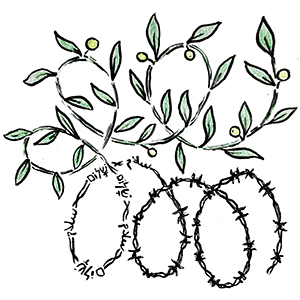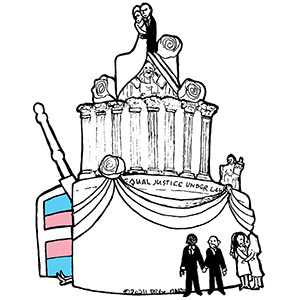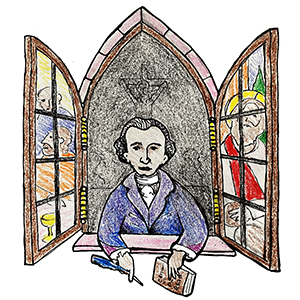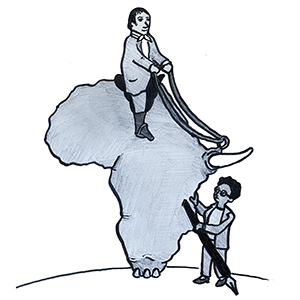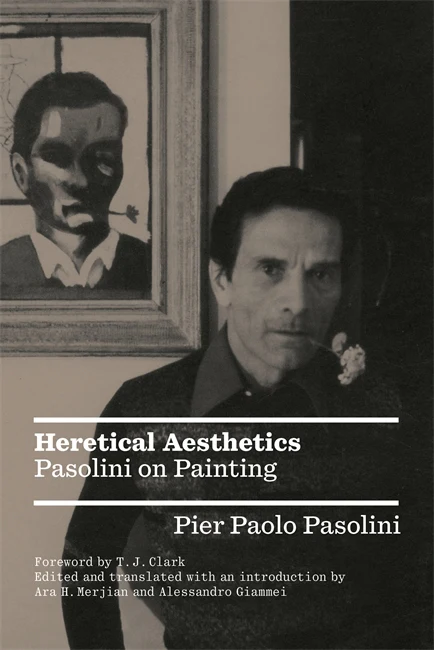A Humanist Perspective on the Causes, Reasonings and Consequences of the Israeli-Palestinian War
Introduction Wars always cause human suffering, even when they are justified. Although suffering is not measurable, it is possible to qualify it as an illegitimate endeavor. Therefore, wars are substantially immoral. If this is the case, one should ask why human beings resort to war and violence, causing much suffering. Many philosophers, historians, and social…
Read MoreA New Judaism?*
A fundamental question: “Are we, Israelis, still Jews?”, asked the philosopher Ernest Simon in 1953.[1] What looks like a provocative question, was indeed a descriptive statement. He concluded that the establishment of the Jewish state sharply imposes on Israeli Jews a new type of religion in which the state enjoys total rule over religious institutions.…
Read MoreHas Labor Reawakened?
For the past four decades the labor movement in the United States has been somnolent. Ever since the administration of Ronald Reagan broke the Professional Air Traffic Controllers’ (PATCO) strike in 1981 organized labor has staggered from defeat to defeat. Its most effective weapon, the strike, atrophied. Too often when unions chose to strike, usually…
Read MoreThe Backlash Continues: How Two Recent SCOTUS Rulings Pose a Threat to LGBTQ+ and Especially Trans and Gender Non-Binary Persons
Our Present Context My research and analysis of the backlash against LGBTQ+ and trans inclusion since the Obergefell decision of 2015 legalized same-sex marriage, has convinced me that trans and gender non-binary persons exist as a newly created national political scapegoat of the far right. This isn’t to suggest that trans and gender non-binary persons,…
Read MoreThe Rise of Trumpism
In today’s politics, Donald Trump supporters praise him as welcome relief to what they consider failed politics and policies. Trump opponents see him as narrow minded and intemperate. But there’s more. In a December 2023 national poll, 51 percent of the respondents agreed that Trump would be “a threat to democracy if he is elected…
Read MoreTrump and Trumpism: An American Brand of Fascism
All too often, pundits depict Trump and Trumpism as a unique expression of political extremism, but Trumpism is not entirely unique. When the defining characteristics of his campaign were made public in 2016, Trump and Trumpism began to amplify forms of hate and violence that were pre-existing in the political culture of the United States. …
Read MoreKant After Three Centuries
April 22, 2024 was Immanuel Kant’s three-hundredth birthday. Kant is the most influential modern European philosopher, viewed as a direct ancestor by both the European continental and the Anglophone “analytical” traditions. His philosophy, and the revolution (or revolutions) it set in motion, mark the point of division between early modern and later modern philosophy. Kant…
Read MoreMarcuse’s Most Famous Student: Angela Davis on Critical Theory and German Idealism*
*This article is adapted from a chapter in Joy James’s new book, Contextualizing Angela Davis: The Agency and Identity of Icon. We thank Bloomsbury Press for permission to publish this excerpt. Angela Davis’s interactions with the famous philosopher of critical theory, Herbert Marcuse (1898–1979), shaped not only her university studies but stages within her intellectual and…
Read MoreAfrica, We the Underdeveloped: Wynter’s Discontent in the Light of Hegel’s Conception of Development
*Originally presented at the Caribbean Philosophical Association, Brown University, June 2019 Introduction A passing note, couched in one of the various editions of Hegel’s Philosophy of Right, states the following. “A human being, in the process of necessarily forming itself, is historical, i.e., belongs in time, in the history prior to freedom. Prior to freedom,…
Read MorePasolini’s Aesthetics
Works Discussed: Pier Paolo Pasolini, Heretical Aesthetics: Pasolini on Painting, edited and translated by Ara H. Merjian and Alessandro Giammei Ara H. Merjian, Against the Avant-Garde: Pier Paolo Pasolini, Contemporary Art, and Neocapitalism The first part of Heretical Aesthetics actually recycles the title of the first section in Ara H. Merjian’s previous, much lengthier, volume, purportedly on…
Read More
